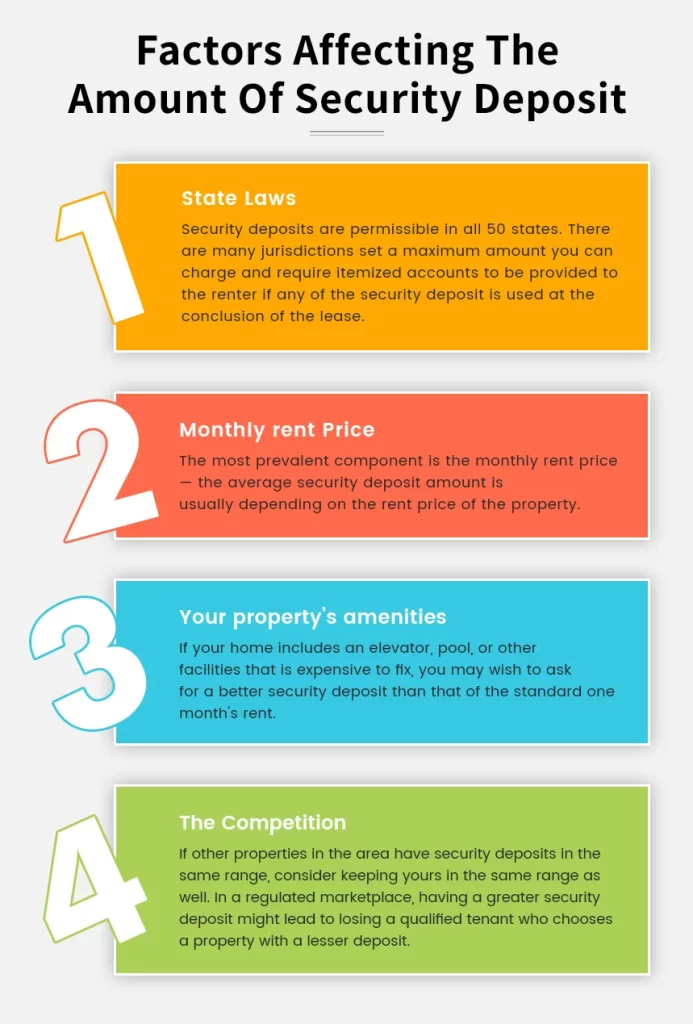A Security Deposit is a sum of money paid to guarantee the use of a piece of property. This phrase associates itself with leasing or renting an apartment. It can also refer to situations where a security deposit is necessary. The Security deposit for renting a home is an essential thing. You should take care of it before going out there to look for a rented place.
Security deposits, often known as “damage deposits,” are either refundable or nonrefundable. This means you may or may not be able to recover your money. It’s beneficial to know when and why a security deposit is a must before providing it.
Security Deposit Definition and Examples
A security deposit, in its broadest sense, is money you pay to someone else as part of a contract to utilize their property or services.
The landlord can keep your deposit if your lease contract permits it to pay any financial losses or damage they suffer as a result of your activities.
What are the basics of a Security Deposit?
How does A Security Deposit work?
The laws can dictate:
- How much can a landlord want as a security deposit?
- When are security deposits due?
- Where must this money be kept?
- When can I get my security deposit back, and how long do I have to get it back?
- When does a landlord have the right to hold a tenant’s security deposit?
Your landlord can keep all or part of your security deposit to cover cleaning and repairs. This happens if you vacate an apartment with stained carpets or broken fixtures. You can also look for FAQs when it comes to Security Deposit.
You may lose your deposit if you violate your lease and leave early. The deposit will be used to cover any remaining rent payments.

Landlord-tenant regulations may also outline what options you have as a renter for reclaiming your security deposit. If you suspect your landlord is unjustly withholding your deposit, you may be eligible to bring a civil complaint in small claims court.
Do You Need a Security Deposit?
When you rent an apartment or another place to reside, the landlord will almost always require a security deposit. If you don’t have the funds to pay a significant deposit upfront, you might be able to negotiate an alternate deal.
For example, you can split the deposit over the first three months of your lease term. Let’s get to know key takeaways about Security Deposit for Renting.
Key Takeaways
- The payments made in advance as a part of the contract to get access to the property is a Security Deposit.
- When renting a property, the lease agreement should specify the security deposit. The landlord-tenant legislation governs the lease agreement.
- Depending on the conditions of your agreement with a service provider or landlord, security deposits may be refundable or non-refundable.
-
If your security deposit is not given in an unfair manner, you can sue them in civil court to get it back.
Additionally, refer experts from Elite Properties who can assist you in making the right decision. We are a cash buying company that suggests we provide fast closings. Call us at 718-977-5462 today.


Leave a Reply
You must be logged in to post a comment.